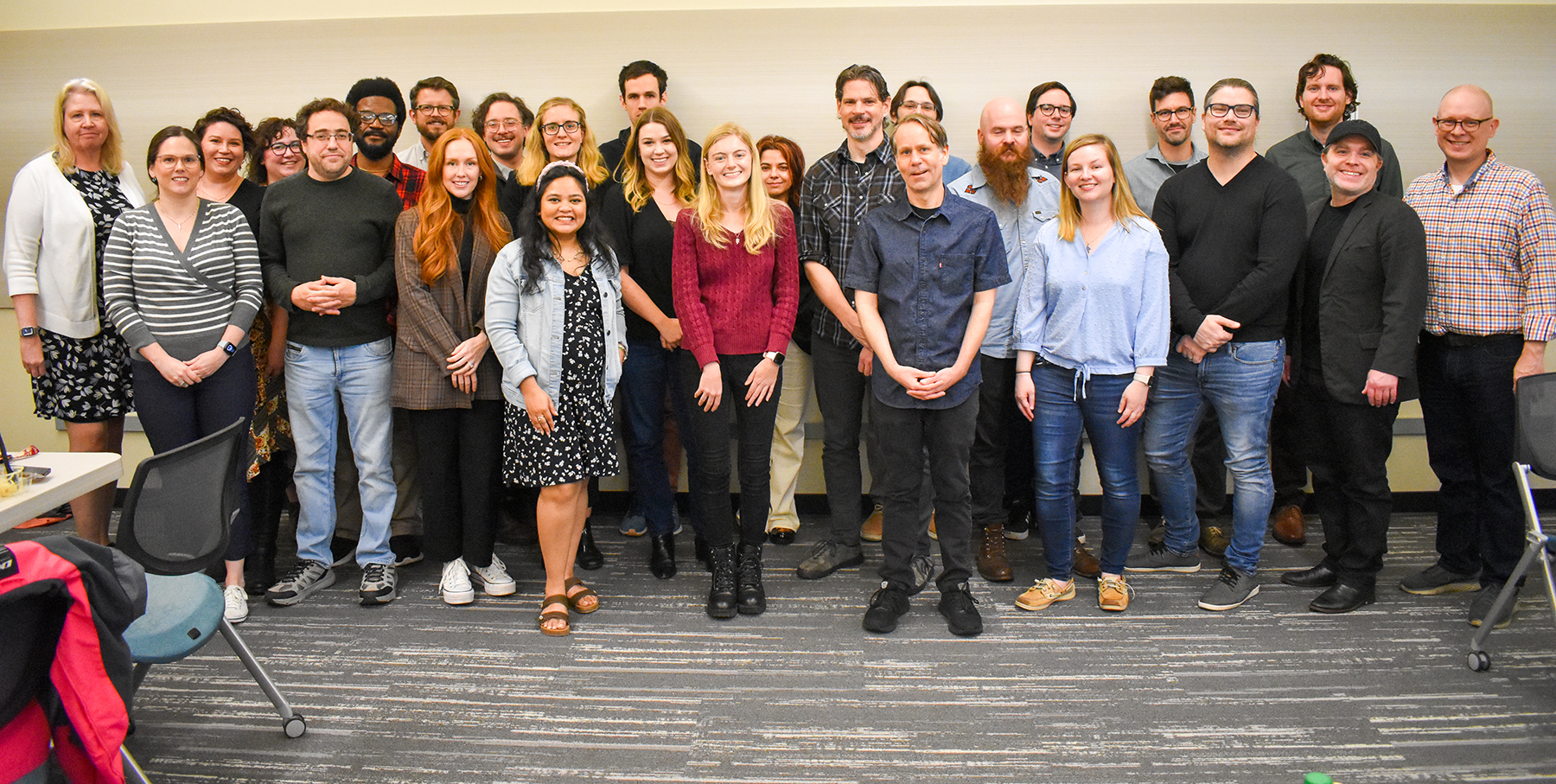
Andy Frazee shares how the Marion L. Brittain Postdoctoral Fellows bring excellence and innovation to Tech both inside and outside the classroom.
Quality writing and communication skills form the foundation for undergraduate education and career development, and the Marion L. Brittain Postdoctoral Fellows at Georgia Tech are laying the groundwork for student success. Since the inception of the Brittain Postdoctoral Fellows program in the late 1980s, few groups at Georgia Tech have had such a significant impact on students as the Brittain Fellows.
“We teach almost all Georgia Tech students at least once in their time at Tech, and so Brittain Fellows’ impact on students is enormous,” said Andy Frazee, senior academic professional and director of writing and communication in the School of Literature, Media, and Communication at Tech.
Each year, the Fellows’ contributions shape Tech and blaze a trail for writing and communication courses everywhere. Frazee shares how these Fellows bring excellence and innovation to Tech both inside and outside the classroom.
A Diverse Cohort of Postdoctoral Scholars
A postdoctoral scholar, or “postdoc,” is someone who has completed their doctorate and has come to Georgia Tech to engage in research, teaching, and the development of professional skills in preparation for their future career.
The Brittain Postdoctoral Fellows account for nearly half of the faculty in the School of Literature, Media, and Communication.
“A typical cohort of incoming Fellows is between 10 and 15,” said Frazee. “This year, 21 Fellows entered the cohort on August 1. We have also begun hiring twice a year, in August and in January. We welcomed an additional six new fellows on January 1, 2023.”
According to Frazee, this is the most diverse cohort yet.
“Brittain Fellows come from many disciplines, generally within English studies but also from the humanities more broadly,” said Frazee. “We have Brittain Fellows who study Shakespeare and those who study video games; we have had anthropologists, historians, artists, and media scholars. And of course, we have folks who come out of rhetoric and composition as well as from technical and professional communication.”
The cohort structure brings diverse disciplines together at the same time, providing diverse perspectives to the courses they teach. While the cohort model for a postdoc program is exceedingly rare, it is the cohort structure that is a major reason for the Brittain Fellowship’s success.
“While the entire Brittain Fellowship is an unusually supportive and cohesive group, the primary building block of this community is the cohort,” said Frazee. “Each group of fellows goes through orientation together, attends semester-long professional development seminars together, and elects representatives to the Writing Program Advisory Committee. All of the Writing and Communication Program leaders know that this cohesiveness is a primary reason for the Fellowship’s remarkable success.”
Excellence in Teaching
“As a whole, Brittain Fellows serve as models for innovative writing curricula and Ph.D. professional development,” said Frazee. “Brittain Fellows teach two main sets of courses: first-year composition (English 1101 and 1102) and technical and professional communication (LMC 3403, 3431, and 3432).”
The multimodal curriculum goes beyond writing. Throughout their three-year term, Fellows also teach written, oral, visual, electronic, and nonverbal communication (WOVEN).
“In ENGL 1101 and 1102, Brittain Fellows challenge and support first-year students in thinking rhetorically about writing and communication, from composing academic essays and giving presentations to producing websites and podcasts,” said Frazee. “In the technical and professional communication courses, Fellows guide upper-level Scheller, Computing, and LMC students in communicating in the workplace.”
This unique curriculum makes Tech’s writing and communication courses highly esteemed.
“The Georgia Tech writing and communication program has been recognized for a number of teaching awards, including the most prominent award for a writing program,” said Frazee.
These awards include:
- 2022 Conference on College Composition’s Communication Writing Program Certificate of Excellence
- 2021 Regents’ Teaching Excellence Award for a Program
Tech students may also encounter Brittain Fellows in the Naugle Communication Center where several Fellows serve as professional consultants.
A Model for Postdoctoral Professional Development
According to Frazee, the Fellowship is an important national model for a highly successful Ph.D. professional development program, both for academic and non-academic career development.
“In short, we want Brittain Fellows, at the end of their three-year term, to move on to a great career,” said Frazee. “Through our professional development seminar and other programming, in the past 12 months, we have supported 21 Brittain Fellows in finding full-time positions, 10 of those going on to tenure-track positions.”
The Fellowship offers postdocs an opportunity to better develop their research interests in writing pedagogy through one-on-one mentorship and co-authoring papers.
“In the past few years, we have been working to shape our mentoring structures to prepare Ph.D.s for the current professional scene and worked to build greater visibility for the Brittain Fellowship as a model of excellence,” said Frazee. “Basically, we have tried hard to change along with the changing professional scene.”
Frazee hopes to continue shaping the Fellowship to best prepare Fellows for their professional futures and to help other institutions understand the exciting possibilities related to well-designed teaching postdoc programs in the humanities.
The Writing and Communication Program in the School of Literature, Media, and Communication at Georgia Tech invites applications for the Marion L. Brittain Postdoctoral Fellowship starting August 1. To learn more about the Fellowship or the application process, visit the webpage here.